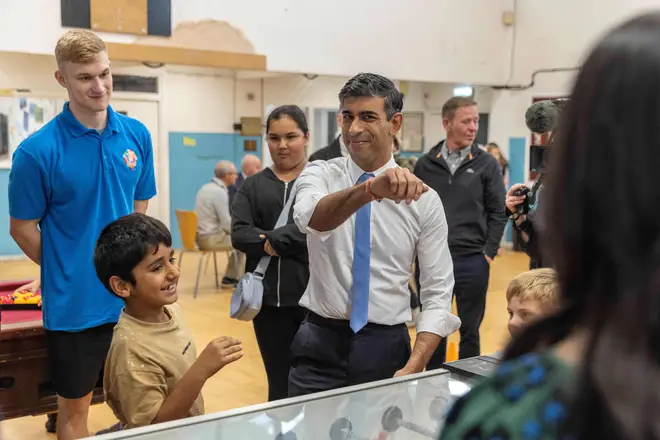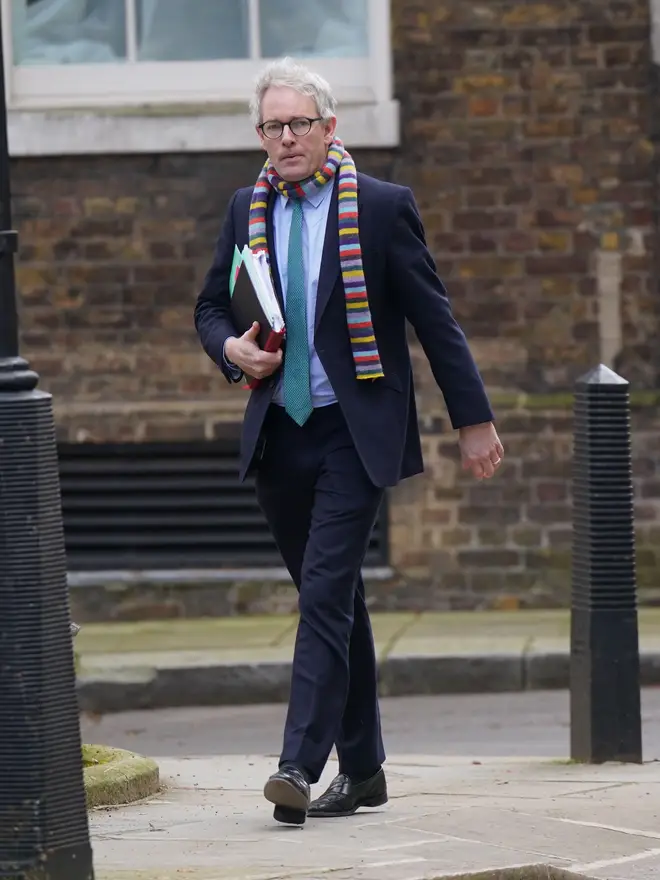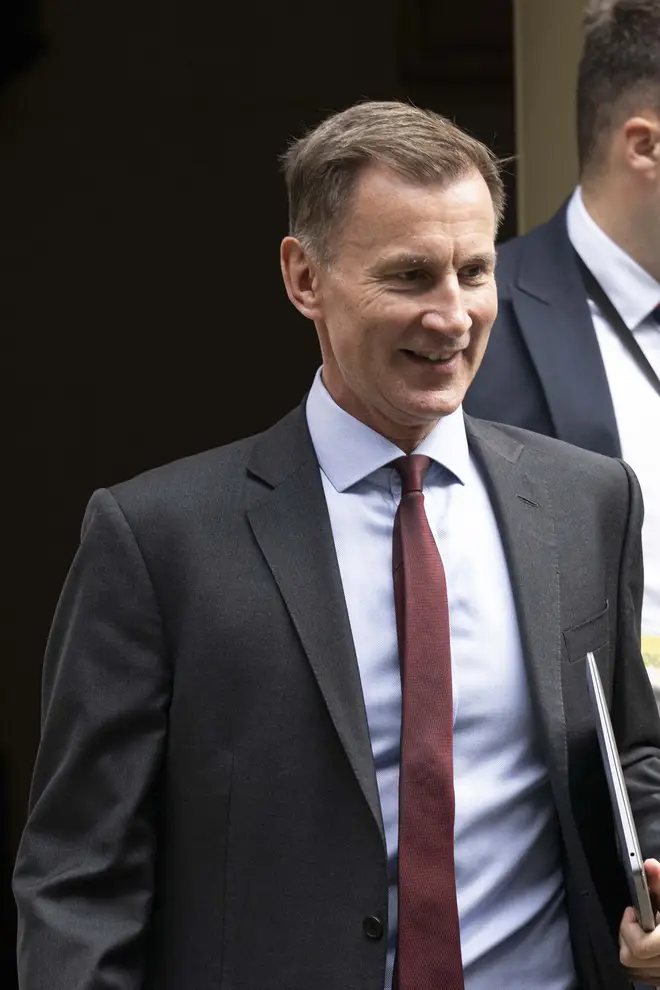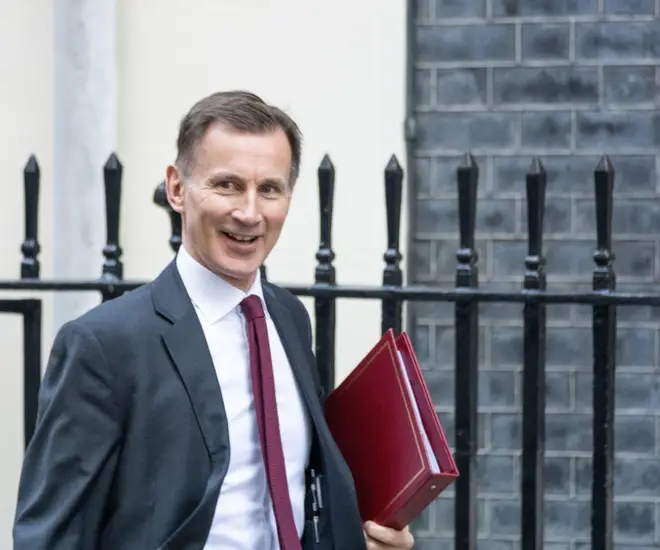
Iain Dale 7pm - 10pm
1 October 2023, 12:18

Rishi Sunak said he wants to bring taxes down but insisted again that "the best tax cut" is halving inflation.
Speaking ahead of the Conservative party conference, which is set to see demands for tax cuts from party backbenchers, the Prime Minister said: "We're all Conservatives. Of course we want to cut taxes.
"The best tax cut, though, that I can deliver right now for the country is to halve inflation.
"It's inflation which is putting the prices of things up, inflation impacting the cost of living, inflation is eating into people's savings, their bank accounts, their wallets, and that's why the first of my priorities is to bring inflation down, to halve it.
"I'm pleased that we're making progress. I know things are still tough, but the last few months of data should give us comfort and reassurance that we're getting there.
"Inflation is coming down as I said it would, we're going to stick to the course, and that is the best way for me to help people."

Read more: Tory mutiny as backbench MPs demand government cut taxes in 'unprecedented intervention'
With several Tory MPs, including his predecessor Liz Truss, calling for tax cuts, Mr Sunak said: "What all Conservatives want to see are taxes coming down, of course they do. That's what I want to see.
"But the best tax cut that we can deliver right now is to halve inflation."
It is a "deeply Conservative approach", he said, adding "this is what Margaret Thatcher did, this is what Nigel Lawson did".
He added: "This is in the tradition of great Conservative governments, bringing inflation down, because that's the bedrock on which you build a strong economy. And that is the best way to help people with the cost of living."

It comes as a group of rebellious Conservative MPs are set to demand tax cuts in an "unprecedented intervention".
The group, who call themselves the New Conservatives, want the turnover threshold at which VAT is charged on businesses to rise from £85,000 - the level at which it has been held since 2015 - to £250,000.
"The VAT threshold is acting as a drag on exactly those businesses that we need to support," Tory MP Nick Fletcher told the Sun.
The group will also call on the government to cut immigration and increase apprenticeships, among other demands, at the Conservative party conference.
Danny Kruger, his fellow MP and the group's leader, said: "If we hope to rebuild our 2019 coalition, we need to be bold.
"These polling-proved policies would show the electorate we will always stand for their values."

Meanwhile Liz Truss is also set to call for corporation tax to be slashed from 25% to 19%.
The former Prime Minister will say: "This is how we make Britain grow again. It is free businesses that will get us there, not the Treasury, not the Government and not the State."
Levelling Up Secretary Michael Gove also called for taxes to be cut on Sunday, saying he "would like to see the tax burden reduced before the next election."
The Northern Research Group, a collection of Conservative MPs, will also demand that the government commit to building 500,000 new homes.
It comes as research produced by an influential think tank suggests that the current Parliament is likely to have ushered through the highest set of tax rises in over 70 years.
The Institute for Fiscal Studies (IFS) found that taxes will likely have risen to 37% of national income by the time of the next general election in 2024.
Chancellor Jeremy Hunt has consistently said that the government cannot cut taxes now, although he recently said that the UK needs to break the "vicious circle" of constantly rising taxes.
The Chancellor said that artificial intelligence could prove the key to creating a "more productive, not bigger" state to meet increasing demand on public services without continually hiking taxes to pay for them.
But he warned that the steady rate of people moving off work into benefits each year was a sign that the welfare system was not working.

Read more: Tax cuts 'virtually impossible' Chancellor tells LBC in blow to Tory right
Speaking ahead of the conference, Mr Hunt told The Times: "We're not in a position to talk about tax cuts at all.
"The question we have to answer for the British people is: what are you doing to get yourself in a position where you can credibly lower taxes?"
The Chancellor said the UK needed a "more productive state, not a bigger state" in order to lower taxes.

Tax breaks 'impossible' says Jeremy Hunt although flatline on inflation means 'plan is working'
"We need a state that doesn't just deliver the services it currently delivers, but actually improves the services it delivers and recognises that there's going to be more calls on those services with an ageing population," he said.
"But we need to find a formula that doesn't mean that we're on a vicious circle of ever-rising taxes."
Mr Hunt said artificial intelligence could "transform" the public sector, helping teachers to mark papers, assist police in identifying crime hotspots and provide doctors and nurses with "more accurate diagnoses".
The Chancellor said some 100,000 people per year were "moving off work into benefits without any obligation to look for work". He said that was a sign that the system was not working.
He told the newspaper the welfare system had to be a "mix of carrot and stick", with more assistance required to help people find work given there is "no shortage of jobs".
Conservative MPs have been pushing for tax cuts, but Mr Hunt and Rishi Sunak have consistently said that fiscal pressures mean the tax burden cannot be cut yet.
Mr Hunt told LBC's Andrew Marr last week that tax cuts were "virtually impossible", because of the high cost of the UKs' long-term debt.
But some observers think that Mr Hunt could announce some tax cuts ahead of the election next year in a bid to win over voters - possibly financed by scrapping HS2.

Caller believes that those who can afford it should pay more in taxes.
Ben Zaranko of the IFS said: "It is inconceivable that this Parliament will turn out to be anything other than a tax-raising one - and it looks nailed on to be the biggest tax-raising parliament since at least the Second World War," he said.
"This is not, for the most part, a direct consequence of the pandemic. Rather, it reflects decisions to increase Government spending, in part driven by demographic change, pressures on the health service, and some unwinding of austerity.
"It is likely that this Parliament will mark a decisive and permanent shift to a higher-tax economy."

Mark Franks, the director of welfare at the Nuffield Foundation, said there would be "strong pressure" in future to raise taxes even further to pay for increased demand on the NHS.
"Future governments must not only have a credible and robust strategy for the economy and the public finances, but should also be forthright and transparent about the difficult trade-offs they will face," he said.